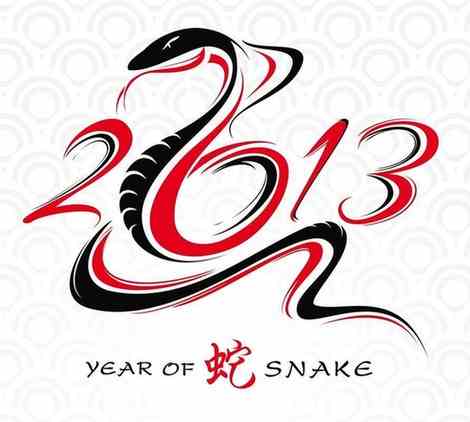作者:王逢鑫

今年是蛇年。蛇与龙一样,都属于十二生肖。幼时,听老人讲“属蛇”就是“属小龙”。龙代表刚猛,蛇象征柔韧,一个刚,一个柔。中国人讲究刚柔并济,以柔克刚。蛇是现实世界的生灵,而龙是模拟身体细长的蛇而想象出来的神话动物。英语表示“蛇”的词有snake(蛇)、serpent(巨蛇)、viper(蝰蛇)、 cobra(眼镜蛇)等,例如:
1. A snake is a crawling animal with a very long thin body and no legs.蛇是一种身体非常细长而无足的爬行动物。
在西方文化中,蛇常使人联想到阴险、凶恶和奸诈。《圣经·旧约》记载了 the Serpent in Eden 的故事。伊甸园之蛇诱惑夏娃(Eve)和亚当(Adam)偷吃禁果,唆使他们犯了原罪,使他们被逐出伊甸园。
snake/viper in one’s/the bosom 这个成语源自古希腊伊索寓言(Aesop’s fable)。一个农夫怜悯冻僵的毒蛇,将其放入怀中,毒蛇苏醒后咬死了农夫。 snake in one’s/the bosom 的字面意思是“怀中的蛇”,比喻“忘恩负义的人”。 to cherish/nourish/nurse/rear/warm a snake/viper/serpent in one’s bosom 的字面意思是“把蛇揣在怀中”,其比喻意义是 to have a dangerous or ungrateful person close to oneself 或 to befriend a person who proves to be treacherous,相当于“护恶养奸”或“养虎遗患”,例如:
2. Never cherish a serpent in your bosom. 永远不要施惠于忘恩负义之徒。
snake in the grass 这个成语源自古罗马诗人维吉尔(Virgil)的诗作《牧歌》,其中有一句相当于英语的 a snake that lurks in the grass,即“暗藏在草丛中的蛇”。英语成语 snake in the grass 比喻 a person who pretends to be your friend but who cannot be trusted because he is secretly damaging you at the same time,或 a treacherous friend who is actually your secret enemy,即“阴险小人”,例如:
3. He is a real snake in the grass. Don’t believe anything he says. 他是个货真价实的阴险小人。他说什么都不要相信。
汉语中有些带“蛇”的成语,如蛇蝎心肠(have a heart as malicious as snakes and scorpions)、毒如蛇蝎(to be as venomous as snakes and scorpions)、牛鬼蛇神(字面意思 ox-headed ghosts and snake-bodied demons,比喻意义 all sorts of bad characters, wicked people of all descriptions)、地头蛇(字面意思 snake in its old haunt,比喻意义 local villain, local bully)等,也具有阴险凶恶的含义,例如:
4. 强龙难压地头蛇。 1) Even a mighty dragon finds it hard to control a snake in its old haunt.(字面意思) 2) A powerful outsider can hardly overwhelm a local bully.(比喻意义)
汉语另有些带“蛇”的成语则与阴险凶恶无关:虎头蛇尾(字面意思 with a tiger's head but a snake’s tail,比喻意义 fine start and poor finish),比喻先紧后松、有始无终的鲜明反差;人心不足蛇吞象(to be greedy like a snake that tries to swallow an elephant),比喻人心的贪婪;画蛇添足(字面意思 to draw a snake and add feet to it,比喻意义 to ruin the effect by adding sth. superfluous, to do sth. entirely unnecessary),这里“蛇足”(字面意思 foot added to a snake,比喻意义 sth. superfluous)比喻多余的事物;蛇影杯弓(字面意思 to mistake the reflection of a bow in the cup for a snake,比喻意义 to be extremely nervous or suspicious),比喻紧张猜疑的心情。例句如:
5. 我们无论做什么工作,都不能虎头蛇尾。 No matter what we do, we should not let the work tail off once it gets started.
6. 这个戏的结局实在是画蛇添足。 The ending of the play has only ruined its effect.
不过,蛇并不总是负面的。中国民间故事和传统戏曲《白蛇传》(A Tale of the White Snake)塑造了白蛇(the White Snake)和青蛇(the Green Snake)两个动人的正面艺术形象。
埃及和印度等国家具有与蛇相关的文化,耍蛇(snake charming)是一种传统的民间技艺,例如:
7. The art of snake charming is widely believed to have started in ancient Egypt. 人们普遍认为耍蛇术起源于古埃及。
8. Snake charming is the practice of pretending to hypnotize a snake by playing an instrument. 耍蛇是通过演奏乐器假装给蛇催眠的活动。
9. In India, one can easily find a snake charmer performing in the market or on the street. The exotic sight of a mystic man with a basket across his shoulder has been a century’s old image of India. 在印度,人们很容易在市场或街道上发现耍蛇者在表演。神秘人肩背竹篓的异域景象是印度一个世纪以来的古老标志。
我国有道著名的粤菜,名曰“龙虎斗”,其主料是蛇肉和狸猫肉,例如:
10. The famous dish in Guangdong Province, called “the Fight Between the Dragon and the Tiger” is actually braised snake and leopard cat. 这道叫作“龙虎斗”的广东名菜实际上是炖蛇肉和狸猫肉。
相关阅读
(来源:《英语世界》2013年第2期,编辑 Helen)